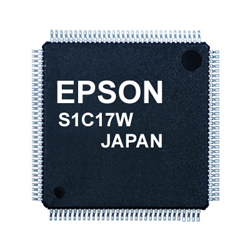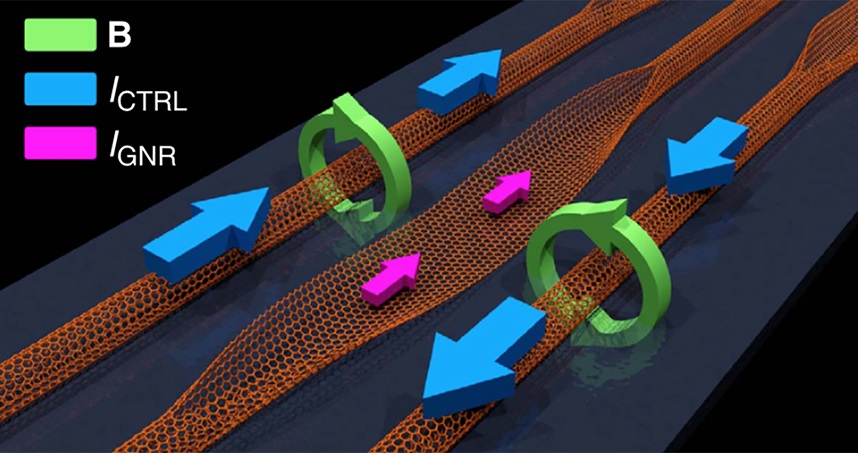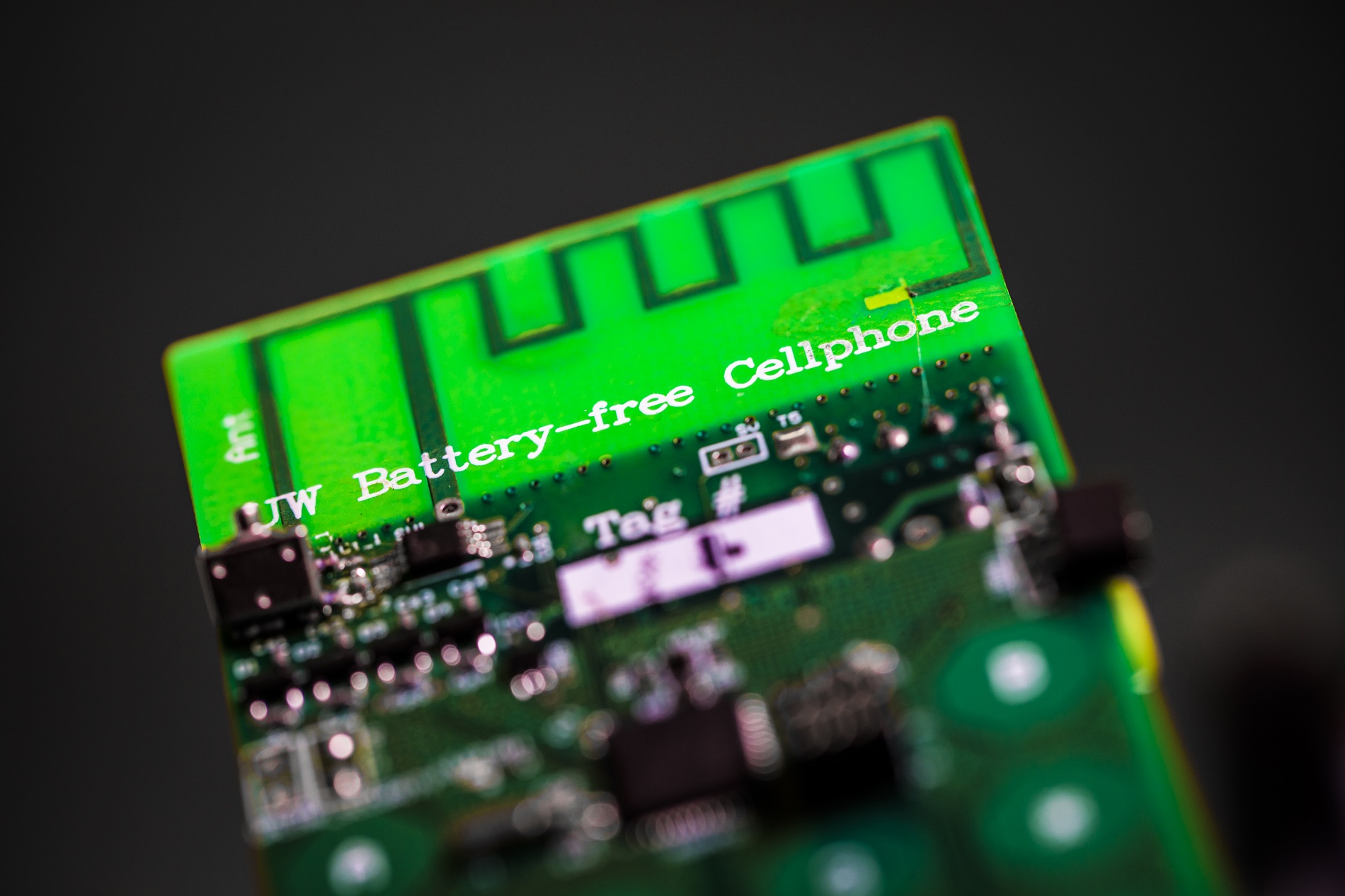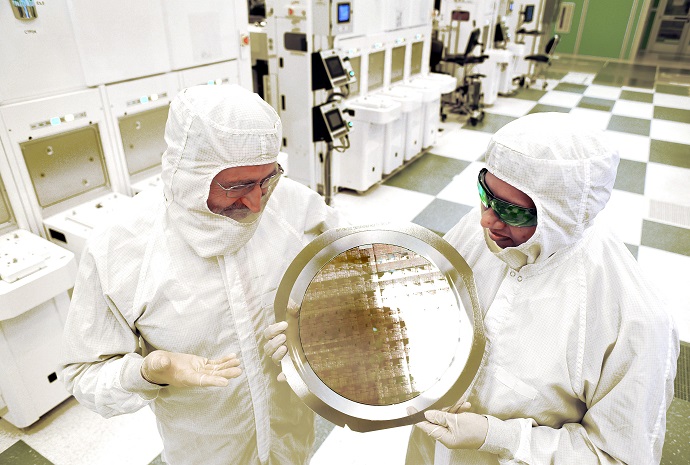TOKYO, Japan, May 9, 2013
Seiko Epson Corporation (TSE: 6724, "Epson") has commercialized and begun volume production of its S1C17W00 series of low power consumption 16-bit flash memory micro controllers that operate at 1.2 V. They will be produced at the rate of 500,000 units monthly. The micro controller is ideal for products like portable electronic devices running on compact, low-capacity power sources such as coin cells. Its low power consumption can greatly increase battery life.
To date most of the flash memory micro controllers used in digital timepieces, remote controls, health care devices, security tokens and so on have been 4-bit or 8-bit. Recent years, however, have brought an increasing number of high-function portable electronic devices for applications such as measuring temperature, humidity and counting steps walked. Moreover, it is easy for manufacturers to program micro controllers with high bit counts by using the C programming language. For these reasons, there is growing need for 16-bit flash memory micro controllers. Customers thinking of using such micro controllers are looking for low-power units that can increase bit counts without changing the battery life and capacity of current products.
To meet this demand, Epson has tapped its strengths in low-leak processes, system power efficiency-boosting algorithms and analog IP technology. The result is the S1C17W00 series of micro controllers with 16-bit flash memory and consuming just 1.2 V of power, which is as little as a 4-bit micro controller. Standby energy consumption is just 0.15 μA at 3 V. The product also achieves low power current of just 0.3 μA in 32 kHz halt mode and 4 μA in 32 kHz run mode*1 owing to the internal DC/DC step-down converter, which optimizes the micro controller's internal operating voltage.
Since the micro controller also supports control of many types of peripheral circuits, it can be used in a wide range of finished products. Examples include LCD drivers with built-in power supply for displays from segments to dots, 12-bit successive approximation analog-to-digital converters, sound generators that can be enabled to play melodies, and universal port multiplexers*2 that offer a greater degree of design freedom for board layouts.
"We are delighted to launch this product, which we believe closely fits current market needs," said Kazuhiro Takenaka, deputy chief operating officer of Epson's Semiconductor Operations Division. "Epson will continue to enhance the performance of its customers' products with original semiconductors that leverage its low-power-consumption technologies and other strengths."
For documentation and further details about the S1C17W00 series, please see the following link: http://www.epson.jp/device/semicon_e/product/mcu/16bit/index.htm#ac08
*1: In Super Economy mode.
*2: A system by which the user can freely assign peripheral circuit input/output functions to I/O ports, by means of software
About Epson
Epson is a global innovation leader whose product lineup ranges from inkjet printers and printing systems, 3LCD projectors and industrial robots to sensors and other microdevices. Dedicated to exceeding the vision of its customers worldwide, Epson delivers customer value based on compact, energy-saving, and high-precision technologies in markets spanning enterprise and the home to commerce and industry.
ed by the Japan-based Seiko Epson Corporation, the Epson Group comprises more than 68,000 employees in 96 companies around the world, and is proud of its ongoing contributions to the global environment and the communities in which it operates.
http://global.epson.com/















